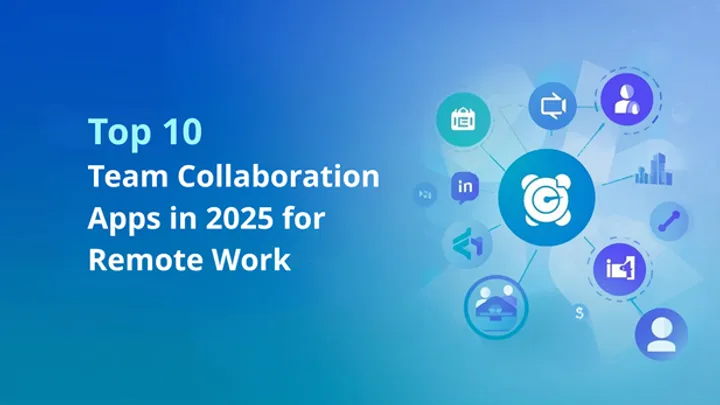Marvel's Spider-Man: Miles Morales thrusts players into the stylish new world of a fledgling hero, taking on the mantle of Spider-Man in a snow-covered New York City. This is more than just a game; it's a rite of passage, a detailed simulation of what it takes to balance a complex life with the immense responsibilities of a superhero. This guide will walk you through every critical aspect of the game, from mastering the basics to navigating the deepest of its systems. Along the way, we'll draw surprising parallels to the real world, including finance, legal strategy, and personal health, proving that the skills needed to save Harlem are not so different from those required to navigate the challenges of modern life.
 How to Master the Fundamentals of Web-Slinging and Combat
How to Master the Fundamentals of Web-Slinging and Combat
The journey of any Spider-Man begins with mastering the art of traversal and combat. Unlike Peter Parker, Miles brings a unique flair to his movements and fighting style. Your first priority should be to become one with the web-slinging mechanics. The fluid motion and acrobatic grace are powered by a surprisingly robust technology engine that simulates realistic physics. To truly master it, spend time in the open world, swinging between buildings and experimenting with aerial tricks.
Combat is a mix of rhythmic strikes, precise dodging, and clever gadget use. The core "How to" is simple: learn to parry and counter. The game's combat system is a form of kinetic negotiation, where every attack and dodge is a strategic move. A well-timed counter can shift the entire battle in your favor. This initial learning period is a crucial form of education, where you're not just playing a game but building a fundamental skill set that will carry you through every challenge. The more you practice, the more intuitive the combat becomes.
The Role of Spider-Sense and Instinct
Your Spider-Sense is your most valuable asset. It's the game's primary software utility for alerting you to incoming threats, allowing you to dodge at the last possible moment. Learning to trust this instinct is paramount. It’s the difference between a successful takedown and an overwhelming defeat. You’ll be able to tell when a normal punch is coming versus a supercharged attack.
The combat system is a beautiful symphony of strikes and dodges. As you fight, you'll feel the rhythm of each encounter. This rhythm is crucial for success. You’ll need to master this core gameplay loop to have a chance against the more powerful enemies you’ll encounter later. Every move counts, and the flow of combat is a fluid trading of blows that you must win.
How to Unlock and Utilize Your Skills and Gadgets
As you complete missions and defeat enemies, you’ll earn XP, which translates into skill points. These points are your key to unlocking a vast array of new abilities. The skills are divided into different trees: Combat, Venom, and Traversal. To unlock the full potential of Miles, you must carefully plan how you spend these points, much like managing a sophisticated investment portfolio.
The gadgets in your arsenal are equally important. From the remote mines to the holographic projectors, each one serves a unique purpose. The technology behind these gadgets is what separates Miles from a simple street brawler. They are a form of specialized software that allows for creative combat solutions. For example, using a remote mine to stick an enemy to a wall is a simple yet effective strategy that you’ll learn in the game's early classes.
Managing Your Digital Arsenal
Your gadget arsenal is a form of digital finance. Each gadget has a limited use and must be replenished. You’ll need to decide when to use a gadget versus when to rely on your base combat skills. This resource management is critical, especially during prolonged fights. It’s a constant cost-benefit analysis that will teach you the importance of strategic spending.
Upgrading your gadgets is a major part of the game’s progression. These upgrades often require you to spend tokens and other in-game resources. It's almost like a financial transfer from your bank of resources to your arsenal of tools. These upgrades, while costly, can dramatically improve your effectiveness in battle.
 Navigating the Financial and Resource Management of Harlem
Navigating the Financial and Resource Management of Harlem
As a superhero, your "job" doesn't come with a salary. In Marvel's Spider-Man: Miles Morales, your currency is the various tokens you earn from completing missions and challenges. Managing these tokens is the game’s primary finance simulator. You’ll earn Activity Tokens, Tech Parts, and a few others. These are your virtual credit to spend on new suits and suit mods.
Just as in the real world, you can get into a form of debt if you're not careful. If you spend all your tokens on one suit, you might not have enough for a crucial upgrade later on. This resource management system teaches players about the value of saving and strategic spending. The game even has a donation system where you can give money to a cause, a small but important feature that reminds you of the hero’s responsibility to the community.
The Cost of Being a Hero
The game’s resource system operates much like a real-world economy. You earn from your "work" (completing missions) and you spend on your "liabilities" (new suits and upgrades). The most expensive suits might even feel like taking on a mini-mortgage, as they require a significant long-term commitment of resources.
The game never forces you to use credit cards, but the in-game economy feels like a simplified version of our own. Every decision, from buying a new suit to upgrading a gadget, has an economic consequence. This subtle system is a form of gamified education about fiscal responsibility.
How to Manage Your Health and Recovery in a High-Stakes World
Being a hero takes a toll on your health. Miles will take hits, and his health bar will deplete. This is a crucial element of the gameplay. Your primary treatment is to use a healing mechanism to restore your health. This ability is tied to a meter that fills up as you perform combos and dodges, rewarding skillful play.
Just like an athlete recovering from a personal injury, Miles must be able to bounce back from the brink of defeat. The healing process is not instant; it requires a momentary pause in the action. This brief moment of recovery is a tactical consideration in a fight. You have to find a window to heal, or you risk being taken down. The entire system is a form of medical simulation, where you are responsible for maintaining the well-being of your hero.
Long-Term Hero Wellness
The physical demands of being Spider-Man are immense. Miles’s ability to use his Venom powers and perform complex acrobatics is a form of physical prowess. Without a proper health regimen, his body would break down. The game doesn't explicitly simulate this, but the constant need for recovery from battles implies the physical and mental toll.
You could even say that if Miles were to get overwhelmed, he might need to take a break from his duties, a symbolic period of rehab to clear his mind and get back to peak performance. This metaphorical approach to his character's well-being adds a layer of depth to the gameplay, making you feel more responsible for his journey.
The Legal Frameworks of Spider-Man's Universe
The world of Spider-Man is governed by an unwritten legal code. While you don't attend court, your actions have consequences. You are a vigilante, and the city's authorities are not always on your side. The primary "How to" here is to understand the unspoken laws of the universe you inhabit.
For example, when you engage in a big battle, you are essentially getting into a dispute with the villains, much like a complex case a skilled attorney would handle. If you're injured in the line of duty, you can’t file a personal injury claim as a hero, but you are still responsible for your own recovery.
The Metaphorical Law
The entire game is a metaphorical courtroom. Every fight is a battle of will and skill, and your success or failure is the verdict. You can think of the city's police force as a lawyer for the public, sometimes acting as your ally and sometimes as a foe. You must navigate these relationships carefully.
The idea of a divorce from your past life is central to Miles’s journey. He must separate his normal teenage life from his new identity as a hero. This is a significant theme that the game explores, showing the emotional and psychological toll it takes on him. This emotional recovery is just as important as the physical one.
Becoming an Expert: Education and Training for a New Spider-Man
To truly master the game, you need more than just instinct. You need education. This comes from playing, learning from mistakes, and watching tutorials. The game's progressive difficulty acts as a series of classes, each one testing your newfound skills and pushing you to the next level.
The main story quests are like a mandatory curriculum. You must complete them to advance, and each one teaches you a new ability or a new lesson. The optional side quests are like elective classes; they're not required, but they enrich your experience and reward you with valuable resources. At the end of the game, you will have earned your hero’s degree, a testament to the fact that you have mastered every aspect of your new identity.
Advanced Learning Modules
For advanced players, mastering the combat system involves a deep understanding of its intricacies. This level of skill is a form of specialized knowledge, a degree in combat strategy. These players often participate in virtual conference calls on forums and social media to discuss strategies and share tips. This level of community engagement is a vital part of the gaming experience.
The process of learning to use Miles’s more advanced abilities, like his Venom powers, requires a disciplined approach, much like a rigorous education program. You must practice to become truly proficient, and the more you put in, the more you get out.
 How to Handle Complex Operations and Communications
How to Handle Complex Operations and Communications
Miles's journey is not a solitary one. He is constantly in communication with his friends and allies. The in-game phone acts as your hub for communication, almost like a miniature conference call system. You'll receive missions, updates, and side quest requests through this device.
The entire game world is "hosted" on your console or PC. The seamless streaming of assets and the open world are a testament to the power of modern gaming technology and the developer's mastery of software design. The smooth experience of swinging through the city is powered by complex code and dedicated hardware.
The Role of Communication and Transfer
Every mission begins with a briefing, a virtual conference call between Miles and his allies. This communication is vital for success, as it gives you a clear understanding of your objectives. Without it, you would be lost.
The movement of data from the game disc to your console’s hard drive, and the subsequent loading of the world, is a form of digital transfer. The smooth experience of the game relies on the efficiency of this process. The ability to load new areas of the map without any lag is a marvel of modern technology.
The Cost of Being a Hero: Understanding Utilities and Liabilities
Being a superhero isn't free. Miles needs to maintain his gear and his hideout. While the game doesn't have a direct "bill" system, you can use your imagination. The constant use of his gadgets requires power, a metaphorical cost of Gas/Electicity. The use of his suit and its various upgrades is a liability.
Just like a homeowner needs insurance to protect their property, a hero needs to protect his identity and his loved ones. The game explores this concept through its narrative, as Miles must balance his hero life with his personal one. Protecting his family and friends is his ultimate insurance policy.
Financial Commitments and Responsibilities
The challenges Miles faces, from fighting against the Roxxon Corporation to a rival gang, feel like a complex legal battle. The risks he takes feel like a mortgage on his future. He's putting everything on the line, and if he fails, the consequences could be catastrophic.
The entire game is a claim on Miles’s time and energy. He's a busy teenager, and he has to give up his personal life to be a hero. This donation of his time and energy is what makes him so special.
How to Master Travel and Exploration
The ultimate "How to" in any Spider-Man game is mastering traversal. The city of New York is your playground, and getting around is half the fun. You can travel across the city by swinging from webs, running on rooftops, or even gliding. The sheer joy of movement is what makes the game so special.
This free-form travel is an experience in itself. You can go anywhere you want, from the highest skyscraper to the busiest street. The seamless nature of the map allows you to explore every nook and cranny. You’ll be able to find hidden collectibles, side quests, and other secrets as you explore the world. The joy of travel is not just about getting to your destination; it’s about the journey itself.
Finding Your Path
The city is a web of interconnecting paths. You can choose to be methodical in your travel, taking the most direct route to a mission, or you can choose to be spontaneous, simply swinging around for fun. There is no right or wrong way to explore, and the game rewards you for both.
The sense of freedom is unparalleled. You can go anywhere you want, and the game’s world feels alive and responsive to your movements. This freedom of travel is a core part of the Spider-Man fantasy.
Conclusion and Final Thoughts
Marvel's Spider-Man: Miles Morales is a triumph in every sense of the word. It's a game that offers a masterclass in gameplay, storytelling, and world-building. While it may be a shorter experience than its predecessor, it is a focused and polished one that will leave a lasting impression. From mastering the fundamentals to navigating the complex systems, this guide has shown you that the skills you need to master this game are not so different from those required to navigate the complexities of life. It’s a game that will teach you about finance, health, technology, and even legal matters, all while swinging through a vibrant New York City.
The journey of Miles Morales is a true coming-of-age story, and the game is a must-play for fans of the genre.

















